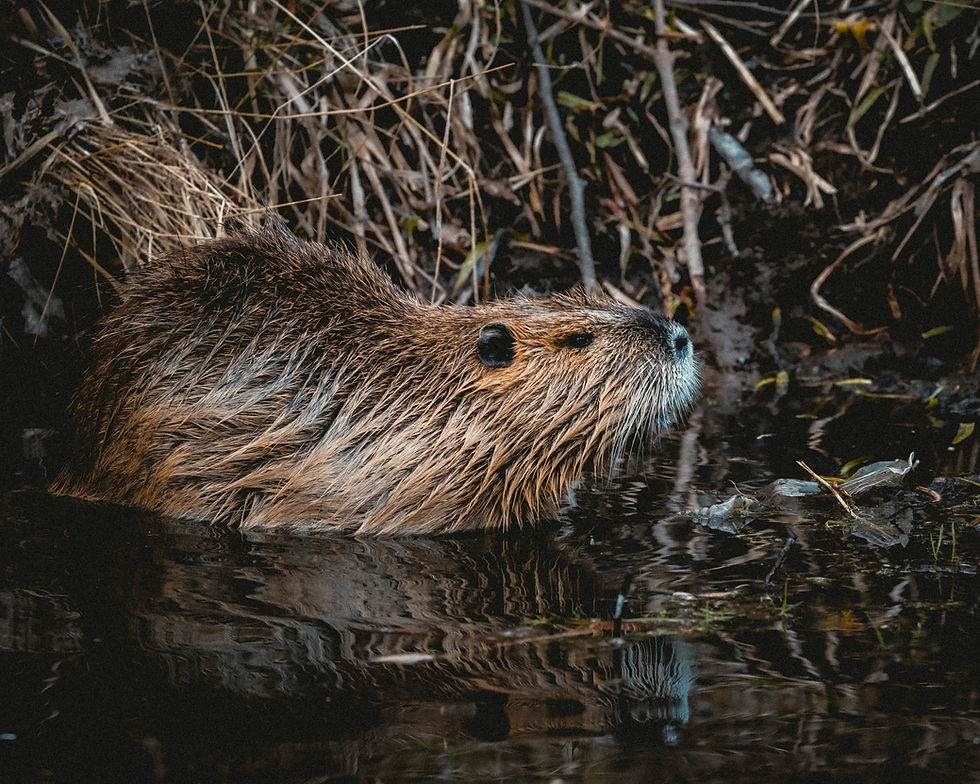How Animals Shape Our World
- Arg

- Oct 12, 2023
- 5 min read

Animals, a diverse group of multicellular organisms, inhabit our planet's ecosystems, ranging from microscopic creatures like plankton to massive species like whales and elephants. They exhibit a wide array of adaptations and behaviors, often serving unique ecological roles. Animals play crucial roles in various ecosystems, including pollination, seed dispersal, predation, and decomposition.

They also hold cultural significance, inspiring art, folklore, and scientific innovation. The study and conservation of animals are essential for preserving biodiversity and maintaining the delicate balance of life on Earth. Animals are not only fascinating and diverse but also integral to the functioning and health of our planet. They play crucial roles in pollination, decomposition, and serving as food sources for larger creatures.

Animal food chain is a simplified representation of the flow of energy and nutrients in an ecosystem. It starts with producers (usually plants) that capture energy from the sun and produce their own food through photosynthesis. Herbivores are the next level, consuming plants for their energy. Carnivores come next, feeding on herbivores or other carnivores. At the top are tertiary consumers, often apex predators. Decomposers break down dead organisms and organic matter, returning nutrients to the ecosystem. Food chains illustrate the interdependence of species and the transfer of energy, highlighting the intricate web of life in nature.
In This Journey, we embark on a fascinating journey to discover how animals have left their indelible mark on our world.
The Architects of Nature
The role of certain creatures in shaping their environments is so remarkable that it earned then their titles as Architects of Nature. These animal architects, from beavers constructing dams to coral polyps building reefs, wield their physical, behavioral, or ecological attributes to actively modify their surroundings. Their transformative activities, such as creating wetlands, enhancing soil health, or forming intricate structures in oceans, have far-reaching ecological consequences. These creatures act as keystone species, benefiting a wide range of other species and promoting biodiversity. Recognizing their influence is vital for conservation efforts and landscape management, underscoring the profound impact animals have on the world around them.
Some of the so called Architects of nature include :
Beavers

When we talk about the Architects of nature, the first animal that we think of are Beavers which are often considered the "engineers of the wild". Beavers are large, aquatic rodents known for their extraordinary abilities. They are expert builders, creating dams and lodges in wetland habitats. Beavers are extraordinary creatures that wield immense influence over their environment These industrious creatures profoundly impact their ecosystems by transforming flowing water into serene ponds, which, in turn, support diverse wildlife. Beavers are considered keystone species, and their activities play a pivotal role in enhancing biodiversity and the overall health of their habitats. However, their interactions with humans can sometimes lead to challenges, particularly related to flooding issues. Conservation efforts are aimed at promoting coexistence while preserving these valuable creatures and their ecological contributions. Beavers exemplify the intricate relationships between animals and their environment and their profound influence on the landscapes they inhabit.
Earthworms

Next we have the earthworm, known as the Soil Scientists Beneath Our Feet. Earthworms are often overlooked but essential to ecosystems, are remarkable creatures with a profound impact on soil health and plant growth. They are ecosystem engineers that enhance soil structure, aeration, and nutrient cycling through their burrowing and feeding activities. Earthworms are beneficial for agriculture and gardening, as they improve soil fertility and help break down organic matter. These unassuming invertebrates are crucial for maintaining healthy soils and are a key component of terrestrial ecosystems, illustrating how even the smallest organisms play significant roles in nature.
Coral Reefs

Coral Reefs dubbed Tiny Architects of Ocean Biodiversity. Within the depths of the world's oceans, coral polyps engineer intricate structures by secreting calcium carbonate, forming vast coral reefs. These reefs provide shelter, breeding grounds, and food for a wide range of marine life. The destruction of coral reefs due to climate change and human activities underscores the importance of these coral engineers in sustaining ocean biodiversity.
Recognizing the importance of animals as ecosystem engineers is crucial for conservation efforts. It highlights the need to protect and restore the habitats and ecosystems where these engineers thrive. Furthermore, understanding their role has implications for managing and restoring landscapes, mitigating climate change, and sustaining biodiversity.
As we delve into the fascinating world of animals , we discover that they are not just passive participants in their environments; they are active shapers of the world we know. Their actions have far-reaching effects, influencing landscapes, promoting biodiversity, and ultimately leaving an indelible mark on the planet's ecosystems.
The Symphony of Life
Biodiversity, the dazzling variety of life on Earth, owes much to animals. Their role as pollinators is fundamental for agriculture and food production. Bees, butterflies, and birds tirelessly transfer pollen from one plant to another, facilitating fertilization and fruit production.

Moreover, animals participate in seed dispersal, helping plants colonize new areas. This aids in forest regeneration and maintains the genetic diversity of plant populations. Beyond this, apex predators like wolves and big cats play a pivotal role in controlling herbivore populations, preventing overgrazing, and preserving the balance of delicate food chains.
Animal Inspirations

Animals have inspired human creativity for millennia. From prehistoric cave paintings depicting hunts to the majestic beasts in Greek mythology, animals have held a prominent place in art and culture. They've served as symbols, muses, and allegories in literature, music, and visual arts. In addition to their cultural influence, animals have inspired innovation. The study of birds in flight led to the development of aircraft, and the observation of spider silk's strength has inspired new materials. Biomimicry, the practice of emulating nature's designs in human engineering, often draws from the genius of animals.
Animals and Sustainability
As our world undergoes rapid changes, animals continue to play a vital role in fostering sustainability. Sustainable agriculture relies on integrated pest management, incorporating natural predators to control crop-damaging insects instead of chemicals. Eco-tourism, centered around wildlife and nature, promotes conservation and supports local communities. Furthermore, bio-inspired technology looks to animals for innovative solutions, such as studying sharkskin for more efficient underwater vehicles or replicating the energy efficiency of a kangaroo's hopping motion.

In the captivating world of animals, we find endless wonder, inspiration, and insight into the beauty of life on Earth. From the smallest insects to the mightiest of creatures, they shape our ecosystems, inspire our creativity, and remind us of the profound connections that bind us all, let us not forget the invaluable role they play in the intricate tapestry of life on our planet. These creatures, both great and small, inspire us with their beauty, strength, and resilience. They teach us about coexistence, adaptability, and the need for conservation. Animals exhibit an astonishing range of intelligence and problem-solving abilities. From the complex social structures of elephants to the tool-making skills of some birds
In celebrating the awe-inspiring diversity of the animal kingdom, we are also reminded of our shared responsibility to protect and preserve these remarkable beings and the ecosystems they call home. The animals' story continues, and as we move forward, let us be the guardians of their well-being and the stewards of a planet we all call home.Let's continue to celebrate, protect, and learn from these incredible beings who share our planet. The story of animals is a testament to the awe-inspiring diversity and resilience of life, and it's a story that continues to unfold with each creature's unique contribution to our world.
The animal kingdom is full of surprises. What are your thoughts on animal intelligence? Do you have any personal stories or experiences that highlight the cleverness of animals? Share your thoughts and Get ready to dive into the enchanting realm of the animal kingdom!

Our upcoming blog will take you on a thrilling journey through the wild, exploring the diverse, intriguing, and often surprising stories of our furry, feathered, and finned friends. Prepare to be amazed, enlightened, and charmed by the wonders of the animal world. Stay tuned for captivating tales from the wild side!.




Nice one Biro @being_abdull
Nice keep it